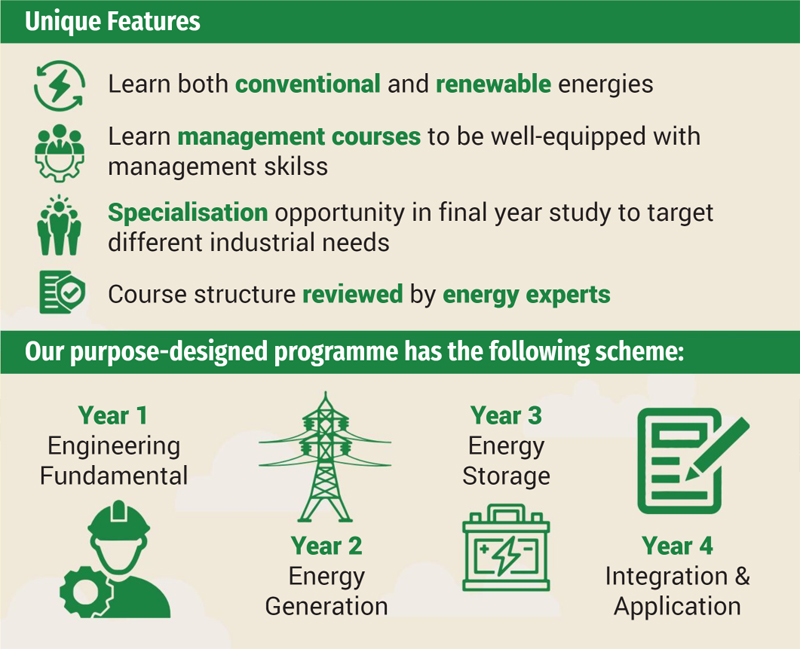2021
31 DecWhy become energy engineers?
The depletion of fossil fuels has been a long-term concern throughout the world as human living standards rise over the past century simultaneously increasing the reliance on these depleting resources for power generation. The shift of energy supply from conventional energy resources to sustainable resources, also known as renewable resources, is necessary to cope with this phenomenon. By taking its location advantages, Malaysia has been developing solar energy over the past decade. Particularly, Malaysia is blessed with a natural tropical climate with average daily solar radiation of 4500 kWh m–2 and abundant sunshine for about 12 h day–1. What’s m-2 and day-1?
In addition to solar energy, Malaysia has also strategised its capacity in developing hydropower, as well as biofuels from biomass resources. The development of renewable energy in Malaysia is encouraging and has received tremendous support from governmental bodies and private companies. To list a few, the National Renewable Energy Policy of Malaysia has set an energy policy vision to achieve a 20% renewable energy capacity mix by 2025; meanwhile, the Tenaga National Berhad (TNB) Malaysia has also listed solar PV, biogas (organic waste, landfill, sewage sludge), biomass (agricultural waste, garbage), and small hydropower under the Feed-in Tariff (FiT) scheme. Nevertheless, we are still lacking competent energy engineers to cope with such energy transition.
UCSI University, being one of the best private universities in Malaysia, has recently launched a new programme named “Bachelor of Energy Engineering with Honours”. This programme offers 4-year specialised courses in energy resources to give a wider perspective of the subject whilst covering the fundamentals of energy, generation of energy and storage of energy, up to the integration of energy in different aspects of the industry.
The main highlight would be the in-depth study on conventional sources of energy such as natural gas, coal, and crude oil and sustainable sources of energy such as biogas, biomass, wind, solar, hydro, and other emerging sources. We envisaged that energy engineers will be able to serve the future industry needs, specifically, in fuelling the energy transition nationally and internationally.







